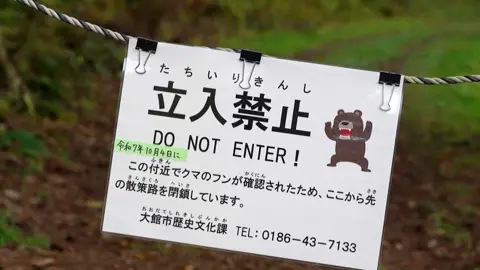Japan Under Pressure from 'Bear Invasion'.. Deaths Rise and Army Intervenes to Curb Attacks

Areas in northern Japan are experiencing unprecedented anxiety due to the increase in bear attacks, prompting residents to attach warning bells to bags and clothing while moving around, and warning signs have spread in the streets urging people not to approach mountainous areas.
Record Victim Toll
Since last April, Japan has recorded 13 deaths and more than 100 injuries due to bear attacks, according to official data, amid a rise in reports of bears entering homes, appearing near schools, and even invading large stores.
The traditional hunter “Kakeru Matsuhashi” from Akita Prefecture confirms that stories of attacks have become almost daily.
Reasons for Bears Encroaching on Humans
Government reports estimate that there are about 12,000 brown bears in Japan along with 42,000 Asian black bears on Honshu Island.
Wildlife experts believe that the increase in food availability due to rising temperatures — such as acorns, deer, and wild boars — alongside the shrinking population in villages and their migration to cities, has created a wide gap near the natural habitats of bears, erasing the old boundaries between nature and residential areas.
Emergency doctors indicate that the attacks have become more ferocious than before.
Military Intervention and New Approach
The Japanese government has begun deploying military units to set traps and directing riot police to use rifles to deal with bears that can weigh up to half a ton.
The state's stance has shifted from a previous “protection” policy to considering bears as part of the list of animals that need population control, especially with the number of hunters declining from more than half a million in the 1980s to only 220,000 today, most of whom are elderly.
Shocking Numbers and Signs of a Temporary Calm Winter
During the year 2023 – 2024, more than 9,000 bears have been exterminated, while the number from April to September this year alone exceeded 4,200 bears, including a thousand bears in Akita alone.
Experts say that bear activity will decrease relatively with the onset of the next winter due to hibernation, but the danger will return with the start of the next season if numbers are not effectively controlled.
